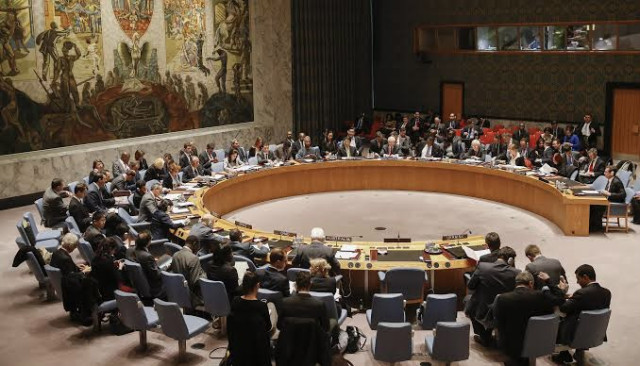The UN General Assembly on Tuesday elected five new non-permanent members to the UN Security Council.
Bahrain, Colombia, the Democratic Republic of the Congo, Latvia, and Liberia will serve two-year terms starting in January 2026, extending through the end of 2027 on the Council, which is tasked with upholding international peace and security.
These new members will replace Algeria, Guyana, the Republic of Korea, Sierra Leone, and Slovenia, whose terms conclude in December 2025.
The Security Council consists of 15 members: five permanent members China, France, Russia, the United Kingdom, and the United States who possess veto power, along with ten non-permanent members elected by the General Assembly for staggered two-year periods.
Annual elections take place through secret ballot, with seat distribution based on regional groups. Candidates require a two-thirds majority in the 193-member General Assembly for election.
A total of 188 Member States voted, requiring only a single round of balloting. In the African and Asia-Pacific group, Bahrain received 186 votes, the Democratic Republic of the Congo obtained 183 votes, and Liberia got 181 votes, with one abstention.
In Eastern Europe, Latvia won 178 votes, while ten countries abstained. In the Latin America and Caribbean group, Colombia received 180 votes, with eight abstentions.
Notably, Latvia will join the Council for the first time. Aside from Latvia, the other elected nations have previous experience: Colombia has served seven times, the DRC twice, and Bahrain and Liberia once.
The non-permanent Security Council seats are allocated based on four regional categories: Africa and Asia; Eastern Europe; Latin America and the Caribbean; and the Western European and other States group.
This year's election filled five positions: two for Africa, one for Asia-Pacific, one for Eastern Europe, and one for Latin America and the Caribbean.




















